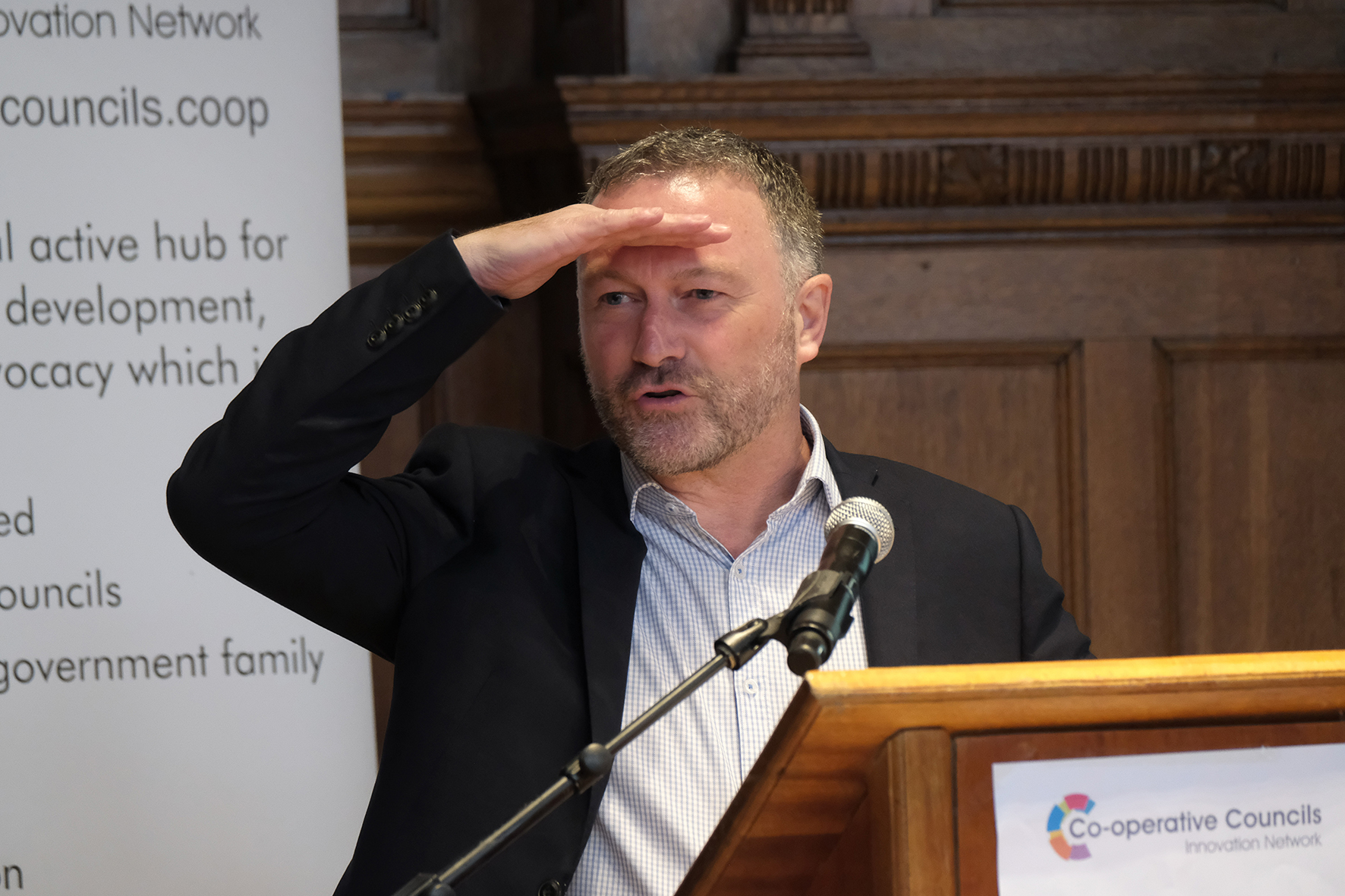It has become a familiar story: political fault-lines are opening up around the world, huge sections of the population are feeling disenfranchised, and reactionary populist movements are moving to fill the vacuum.
The pressures of insecure work, rising inequality, automation, climate change and migration have been cited as factors in Brexit, the election of Donald Trump, the electoral successes of far right parties in Sweden, Italy, Hungary and Brazil, and the hold on power enjoyed by political “strongmen” such as Vladimir Putin, Recep Erdogan and Rodrigo Duterte.

These all represent variations on populism – characterised by political academics such as Jan-Werner Muller as as a form of identity politics that is critical of elites, anti-pluralist, and makes moral claim of representation.
In his book, What is Populism, Muller warns against this trend. “The notion that we move closer to democracy by pitting a ‘silent majority’, which supposedly is being ignored by elites, against elected politicians is not just an illusion, it is a politically pernicious thought … Populism is something like a permanent shadow of modern representative democracy, and a constant peril.”
It’s a development which has left liberal and progressive forces struggling for an alternative response. But the co-op movement has been using the crisis to push its own cause, arguing for more democratic models of ownership. The hope is that co-operative ways of working, focused on potential employment growth sectors such as care work and the knowledge economy, can deliver a more stable future, with less inequality.
In the UK, thinktanks have produced a series of policy documents for a reshaped economy, most recently last month’s report by the Institute for Public Policy Research (IPPR) Commission on Economic Justice.
Co-operative councils
It’s a line of thought which has resonated at regional and local level, where cities turn to co-operative ideas to protect services and boost economies in the face of austerity. Pioneered in Cleveland, USA, the model favours local procurement, paying attention to social value, and favours a mutual model as an alternative to privatisation for service delivery.

The model is being put into practice across the UK by the Co-operative Councils Innovation Network (CCIN) – and at its annual conference in Croydon last week, Steve Reed, honorary president of the CCIN and shadow minister for civil society, presented a chilling picture of the dangers of populism, and the need for a political alternative.
He said the years of austerity following the 2008 financial crash had left people “alienated and remote from politics” and “ripped the heart out of communities with the loss of shared spaces like libraries, pubs, youth and community centres”.
He added: “People are angry because they’ve been unable to influence the changes sweeping away their sense of security, their sense of belonging, their sense of power over their own lives. They’re left instead with a profound sense of loss.
“Putting a cross on a ballot paper once every five years then surrendering to political paternalism isn’t enough. In these circumstances, taking back control sounds good to you.”
And he warned: “We’re not just facing a loss of trust in politics, we are facing a crisis of liberal democracy. Look around the world and we can no longer simply assume democracy will survive. Democracy – where every adult has a free vote – has barely existed for 100 years even in this country.
“Democracies are a minority in terms of how most countries are governed. For most of the world’s history, and even today for most of the world, the default model of government is autocracy, or the strongman.”

Locally based co-operative economies offer hope in the form of a workable alternative, he said. “Instead of giving up on democracy, we have to double down on it and make our system much more democratic by rebuilding politics around people and putting real power in people’s hands.
“We understand that people are more than units of production and consumption in a voracious economy that’s consuming our planet along with people’s lives. We know that people are more than problems to be managed.”
Campaigning
The co-op movement has also lobbied against the worst excesses of the new populism. In the USA, outdoor leisure co-op REI spoke out against Donald Trump‘s attempts to halt flights from certain Muslim countries. And, alongside Canada’s Mountain Equipment Co-op, it has boycotted the goods made by Vista Outdoor, which is linked to the manufacture of guns, in the face of a government refusal to clampdown on gun ownership in the wake of a series of massacres.
Meanwhile, the racial tensions in the US, which have worsened since Trump’s election victory in 2016, have seen a resurgence in the African American co-operative movement.
Related: Co-operation and civil rights – building black economic power in the USA
In the UK, the co-op movement has been lobbying against a no-deal Brexit and calling for a co-op friendly settlement, as well as joining the call to protect the rights of Fairtrade producers in any future trade deals. Italy, co-operators been fighting efforts by the newly elected right-wing coalition to cut funding for refugee co-ops.
The movement has developed its own radical responses to the world’s challenges – as well as the Cleveland model, there is the rise of platform co-ops which aim to disrupt the tech economy and – at facing one of the more brutal outcomes of the changing 21st century, the attempt to build an autonomous co-operative economy in Rojava, in war-torn Syria.
Related: Co-op sector responds to IPCC report on climate change
These ideas are being echoed at grassroots level. Last month in Manchester, there was an event discussing alternative models of home ownership, from campaign group Housing Futures.

Salford’s Labour MP Rebecca Long-Bailey, the shadow business secretary, told the meeting that “the housing crisis exemplifies inequality” in the UK. She said Labour planned to build a million new homes – half of them social housing – if elected, but that this would not be enough on its own.“We also need to investigate new models”, she said, such as co-op housing and co-ownership. This was part of plan to “diversify the economy”.
“We need to investigate who owns the economy, and investigate whose interests it is run for,” she added.
Neil McInroy, chief executive of the Centre for Local Economic Strategies thinktank, agreed there was a need for a variety of ownership models. “We need a plurality of forms to ensure there is not one monolithic entity to extract the wealth.”
He told the meeting the global crisis had discredited the neoliberal consensus and left an “interregnum of ideas” – offering a space of alternative ideas of ownership to develop.
“Things are coming together,” he said, “but we’re not there yet.”
But will this be enough? Mr McInroy warned that such models need a supportive environment, arguing that community asset transfers, which had given responsibility to social housing tenants, had not worked. “It’s a good idea,” he said, “But in a time of austerity, it’s just an exercise in passing the buck.”
He added: “We’ve got to listen more and try to co-design and co-produce” policies with people who had previously “had things done to them.”

